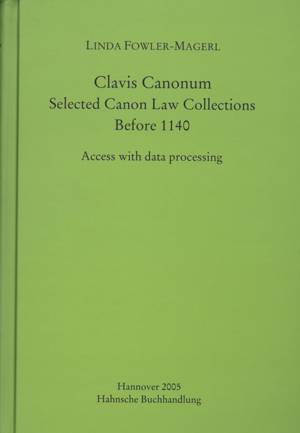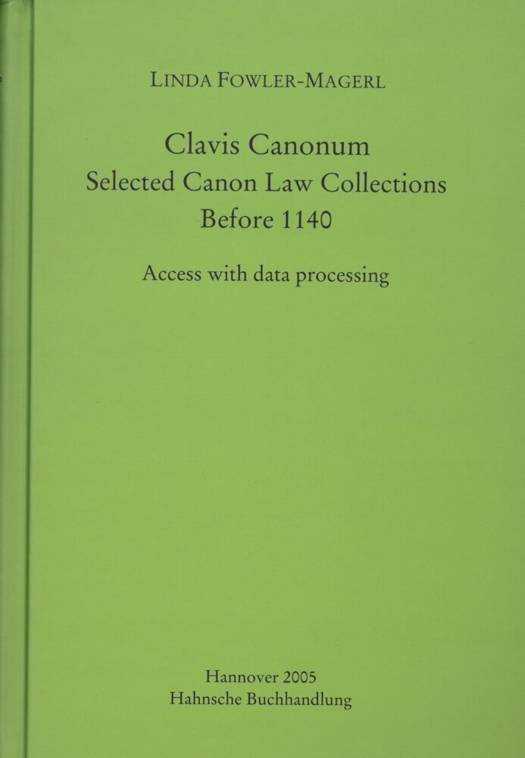
- Afhalen na 1 uur in een winkel met voorraad
- Gratis thuislevering in België vanaf € 30
- Ruim aanbod met 7 miljoen producten
- Afhalen na 1 uur in een winkel met voorraad
- Gratis thuislevering in België vanaf € 30
- Ruim aanbod met 7 miljoen producten
Zoeken
Clavis Canonum
Selected Canon Law Collections Before 1140. Access with Data Processing
Linda Fowler-Magerl
€ 64,45
+ 128 punten
Omschrijving
The present publication is an augmented form of a data bank and accompanying text published in 2003 and provides now access to the incipits, explicits, rubrics and inscriptions of slightly over 100.000 canons taken from the canon law collections compiled before 1140. Of special interest to the historian is the ability to filter out within minutes the use of specific concepts, such as usury or primacy, in the rubrics, and the ability to filter out all the texts attributed to a specific source in either one particular collection or in all collections in the data bank. Of special interest to librarians and the cataloguers of manuscript collections is the ability to place newly discovered collections, even when only excerpts have survived or when critical parts of the manuscripts have been damaged and are illegible. The text accompanying the data bank contains descriptions of the canon law collections found in the data bank and is primarily intended to support its use, but it can also be read from beginning to end as a history of the genre collectio canonum. It is based on recent research and is intended not only for canonists but also for church historians, legal historians and medieval historians in general. The data bank is available on CD-ROM, and the program which makes search, rearrangement and print-out of filtered data was written in Java. The program can be installed on personal computers equipped with Windows, Linux or Macintosh versions with integrated Java (10+).
Specificaties
Betrokkenen
- Auteur(s):
- Uitgeverij:
Inhoud
- Aantal bladzijden:
- 282
- Taal:
- Engels, Duits
- Reeks:
- Reeksnummer:
- nr. 21
Eigenschappen
- Productcode (EAN):
- 9783447171014
- Verschijningsdatum:
- 31/12/2005
- Uitvoering:
- Hardcover
- Formaat:
- Genaaid
- Afmetingen:
- 140 mm x 17 mm
- Gewicht:
- 449 g

Alleen bij Standaard Boekhandel
+ 128 punten op je klantenkaart van Standaard Boekhandel
Beoordelingen
We publiceren alleen reviews die voldoen aan de voorwaarden voor reviews. Bekijk onze voorwaarden voor reviews.











